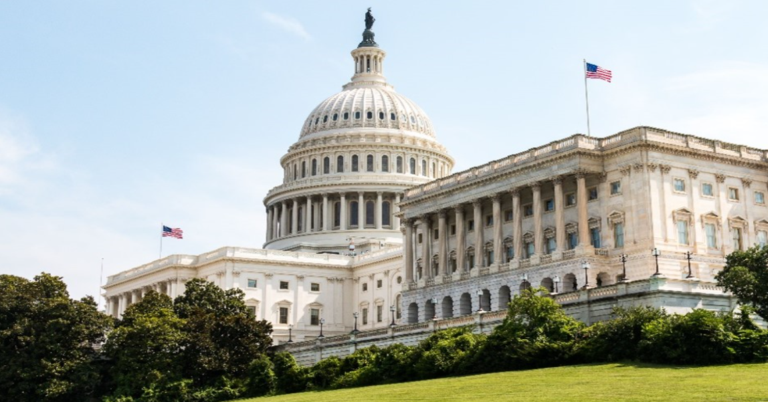
Cutting Through the Red Tape: How AFP Helped Repeal Harmful Regulations Through the Congressional Review Act
Aug 12, 2025 by James Morrone
What is the Congressional Review Act?
The Congressional Review Act (CRA) is a mechanism that allows Congress to review, and potentially repeal, rules and decisions implemented by federal agencies. The Senate’s review period typically lasts 60 session days and 60 legislative days for the House. After review, both chambers vote on the proposed resolutions that would nullify the agency rule; once passed, the resolutions are sent to the president’s desk for signature.
By the Numbers
Among the regulations addressed by Congress under the CRA this session, Congress reviewed and repealed eight burdensome federal regulations identified by Americans for Prosperity activists as harmful; these rules would have upended the economy for small business owners and consumers alike. AFP activists engaged with lawmakers and staff, educating them on the benefits that stemmed from the removal of these burdensome regulations. The removal of these rules is a commonsense win that boosts economic prosperity and protects both consumers and small businesses from higher costs.
AFP’s Engagement
AFP released a Key Vote Alert in support of the H.J. Res. 88, highlighting the importance of repealing the regulation in question. While no other key vote alerts were released, AFP activists provided valuable insights about the impacts of these burdensome regulations while meeting with lawmakers and their staffs.
CRA Wins
- Rejecting California’s Ban on Combustion Engines (H.J. Res. 88) This resolution overturned the California Clean Cars II waiver from the Clean Air Act requirements the Environmental Protection Agency (EPA) granted. If this waiver had remained, the state of California and its decision to forcibly ban the sale of combustion engines by 2035 would have forced a handful of states to follow suit, as these states adopted California’s standards via interstate compact. Such arbitrary rules would eliminate choice for consumers, forcing them to purchase expensive electric and low-emission vehicles that cost more than the average gas-powered vehicle.
- Stopping California’s Electric Trucking Mandate (H.J Res. 87) This resolution nullified an EPA decision that permitted California to implement stricter vehicle emission standards than laid out in the Clean Air Act. California’s emission standard mandated the sale of zero-emission trucks, which would have forced transportation companies to purchase expensive electric vehicles, increasing shipping and transportation costs. The new costs would have undoubtedly been passed on to consumers still reeling from “Bidenomics.”
- Protecting Consumer’s Choice in the Automotive Industry (H.J. Res. 89) This resolution nullified an EPA decision that specifically granted California a waiver to grant the state authority to implement separate motor vehicle and engine pollution standards. The creation of separate, higher standards would increase the price of vehicles in an already inflated market. The removal of this waiver provides consumers more options to find the vehicle they want and can afford.
- Repealing Biden-Era Mistakes to Reduce Emissions (S.J. Res. 31) This resolution overturned a prior EPA rule that set out requirements for a source that reclassified from “major source” to “area source” under the National Emission Standards for Hazardous Air Pollutants (NESHAP) program. The Biden Administration added unnecessary and expensive requirements to a prior Trump Administration rule that provided incentives for facilities to reclassify rather than penalties to achieve emission reductions. With the removal of this rule, covered facilities can continue their progress to reduce emissions without additional costs, ultimately preventing consumers from paying higher prices.
- Keeping the Cost of Tires from Bouncing Higher (H.J. Res. 61) This resolution nullified an EPA rule that implemented additional reporting requirements for emission standards on the production of rubber tires. The increased reporting processes added additional bureaucratic hurdles for manufacturers. Industry leaders estimated that the reporting mandates would increase production costs by millions of dollars, which would have been passed down to consumers.
- Ending Costly Burdens on Food Producers and Distributors (H.J. Res. 24) This resolution overturned a rule released by the Department of Energy (DOE) that created new energy conservation standards for walk-in coolers and freezers. The new energy standards would have raised costs for food providers, ranging from processing plants to restaurants, raising costs for both businesses and consumers. The removal of this rule will allow the food industry to avoid spending more than $1 billion on new equipment, helping to keep food costs down for restaurants still struggling post-Covid.
- Turning Down Biden-Era Appliance Cost Hikes (H.J. Res. 42) This resolution overturned a DOE rule that mandated additional certification, labeling, and enforcement provisions for manufacturers of general home appliances. If this rule remained in effect, manufacturers would have been forced to jump through even more regulatory hoops to get their product to market, and in the process, making appliances even more expensive for consumers.
- Ensuring Commercial Freezer Options for Food Industry (H.J. Res. 75) This resolution nullified a Department of Energy rule that mandated conservation standards for commercial refrigerators and freezers. Under this rule, restaurants, grocery stores, and other similar businesses would have had no choice but to purchase more expensive freezers and refrigerators. Consumers would have seen their foods costs jump even higher if this rule had remained in place.
For the PDF version, please click here.
